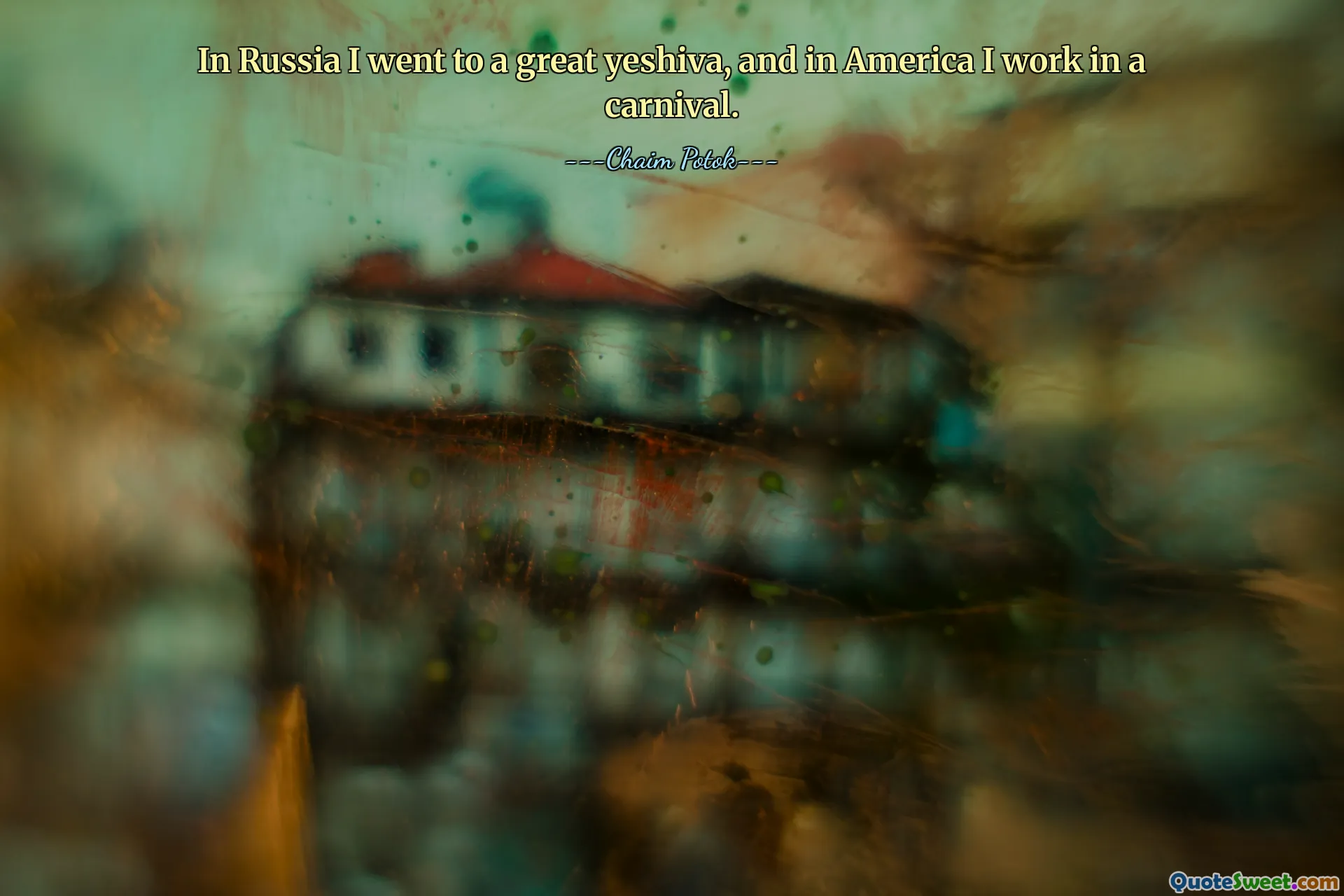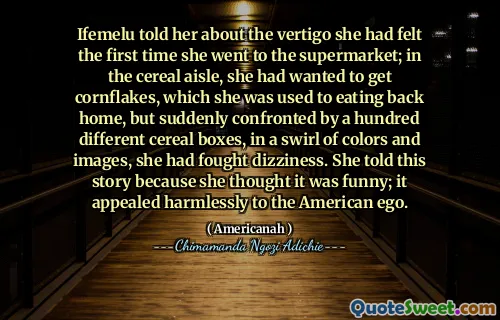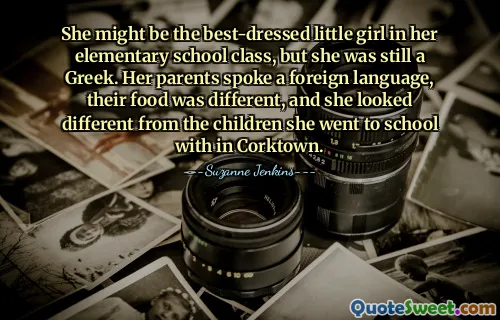
In Russia I went to a great yeshiva, and in America I work in a carnival.
This quote poignantly highlights the complex journey of cultural identity, education, and livelihood that many individuals undergo when immigrating to new countries. The mention of attending a 'great yeshiva' in Russia symbolizes a deep connection to cultural and religious roots, reflecting a time of learning, tradition, and rooted identity. Yet, the transition to America and working in a carnival reveals a stark contrast—an adjustment to a different, often more transient and commercial environment. It encapsulates the dichotomy many diaspora communities face: maintaining their heritage and values while adapting to new societal norms, economic realities, and opportunities. The image of a yeshiva embodies a pursuit of spiritual and intellectual growth, whereas working in a carnival might suggest a need to earn livelihood through temporary or unconventional means, perhaps driven by necessity or circumstance. This juxtaposition underscores the resilience and adaptability required to survive and thrive across contexts. It also raises questions about the sacrifices made in pursuit of a better life and the identity shifts that often accompany immigration. Such a statement resonates with anyone who has experienced cultural dislocation and the challenge of holding onto one's traditions amid the demands and realities of a new homeland. It reminds us that behind every outwardly different surface lies a shared, often complex human story—one marked by perseverance, tradition, change, and hope. The emotional depth of this reflection lies in the understanding that one's identity is multifaceted, shaped by both the ideals they cherish and the pragmatic choices they make amidst changing circumstances. --Chaim Potok








